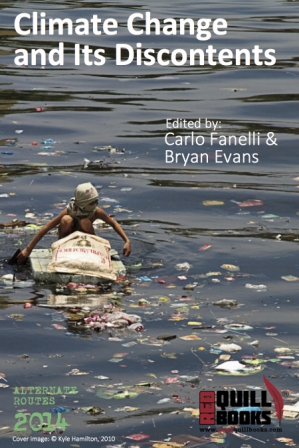Approaches and Responses to Climate Change: Challenges for the Pantanal and the Upper Paraguay River Basin
Abstract
Anthropogenic climate change is expected to have serious socioecological consequences around the globe, in particular for wetland areas. That is the case of the Pantanal, a large tropical wetland located in the Upper Paraguay RiverBasin (UPRB), in the centre of South America, where a range of responses are being devised to cope with the negative impacts of climate change. After a review of the most common approaches discussed in the literature, the results of an empirical study conducted in Brazil, Bolivia and Paraguay are presented. The research attested that most responses have so far evolved around the principles of systematic adaptation (e.g. technology amelioration) and climate scepticism (e.g. postponement of responses) and, more recently, under the influence of marketisation measures (e.g. carbon trading). However, there is also growing enthusiasm, particularly in Bolivia, for the inclusion of initiatives associated with the architecture of entitlements (e.g. improved access to resources) and climate justice (e.g. compensation for the negative impacts of conventional development). Two important factors that seem to undermine the efficacy of the responses to climate change in the region: the hegemonicinfluence of the agribusiness sector and the relatively low importance of the UPRB for national and trilateral environmental policy-making.Downloads
How to Cite
Augusto Rosotto Ioris, A. (2013). Approaches and Responses to Climate Change: Challenges for the Pantanal and the Upper Paraguay River Basin. Alternate Routes: A Journal of Critical Social Research, 25. Retrieved from https://alternateroutes.ca/index.php/ar/article/view/20597
Issue
Section
Articles
License
Articles are published in Alternate Routes: A Journal of Critical Social Research under the Creative Commons "Attribution/Non-Commercial/No Derivative Works" Canada licence.
The copyright for the articles published in this journal is retained by the authors, with first publication rights granted to the journal. By virtue of their appearance in this open access journal, articles may be used, with proper attribution, in educational and other non-commercial, not-for-profit settings. The submission of a manuscript to Alternate Routes will be taken to mean that the author understands and agrees to the following:
- the manuscript represents original work not previously published;
- the manuscript is not being considered elsewhere for publication in the same language (publication elsewhere in an alternate language does not preclude acceptance of submission to Alternate Routes);
- appropriate written copyright permissions have been secured for republication of any copyrighted material contained in the manuscript;
- copyright for this article is retained by the author, with first publication rights granted to Alternate Routes;
- by virtue of its appearance in this open access journal, it is understood that the article is freely available for use, with proper attribution, for educational and other non-commercial purposes;
- reuse of the article for commercial purposes by anyone other than the author requires permission of the author;
- the author agrees to cite Alternate Routes as a source whenever h/she later republishes or reuses the article in other platforms.


